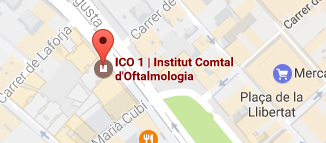Preoperative care
Everything we should think about the day before the operation.
We normally ask a lot of questions about what will happen on the day of the operation. This is logical. However, we should also be aware that our actions on days prior to the operation are also important as these will affect our well-being and the outcome of the surgery.
The days prior to the operation
It is important to be in tip-top physical and mental condition prior to any operation. We therefore recommend reducing your workload on days prior to the operation (if this is possible) as this will reduce work-related concerns. You should also pay particular attention to resting prior to surgery. It is therefore recommended that you sleep a minimum of 8 hours a day and avoid alcoholic beverages and overeating. You should also pay special attention to your body and see your family doctor if any chronic disease gets worse: shortness of breath, chest pain, etc.
It is also a good time to plan your return home and the first few days of postoperative care. Any patient who is seen as an outpatient (discharged on the same day as the surgery) must be taken home by an adult who is able to help if the patient feels dizzy or unwell. It is recommended that someone should stay with you for at least 24 hours or until the first check-up with the ophthalmologist.
Prepare a folder with any paperwork you may need. You should bring the chronic medication sheet with you along with any instructions you have received regarding a modification or change in medication [e.g. changing from Sintrom (acenocoumarol) to heparin].
The day of the operation
You must fast before coming to the clinic. This means that you can have a light meal 6 hours before surgery and drink water up to 2 hours before the operation. If you do not follow this fasting rule, there is a greater possibility of vomiting during and after the operation, increasing both the risk and discomfort associated with the procedure. Your last meal should be light and small.
Other important recommendations are:
- Wear comfortable clothing that is easy to put on. When you get dressed, you will still be recovering from sedation and you will probably have one eye covered.
- Do not wear any type of jewellery: rings, bracelets, earrings or necklaces.
- Do not wear any type of make-up, especially nail varnish, as this makes it hard to monitor your blood oxygen levels.
- Inform the nursing staff if you use a hearing aid or false teeth.



